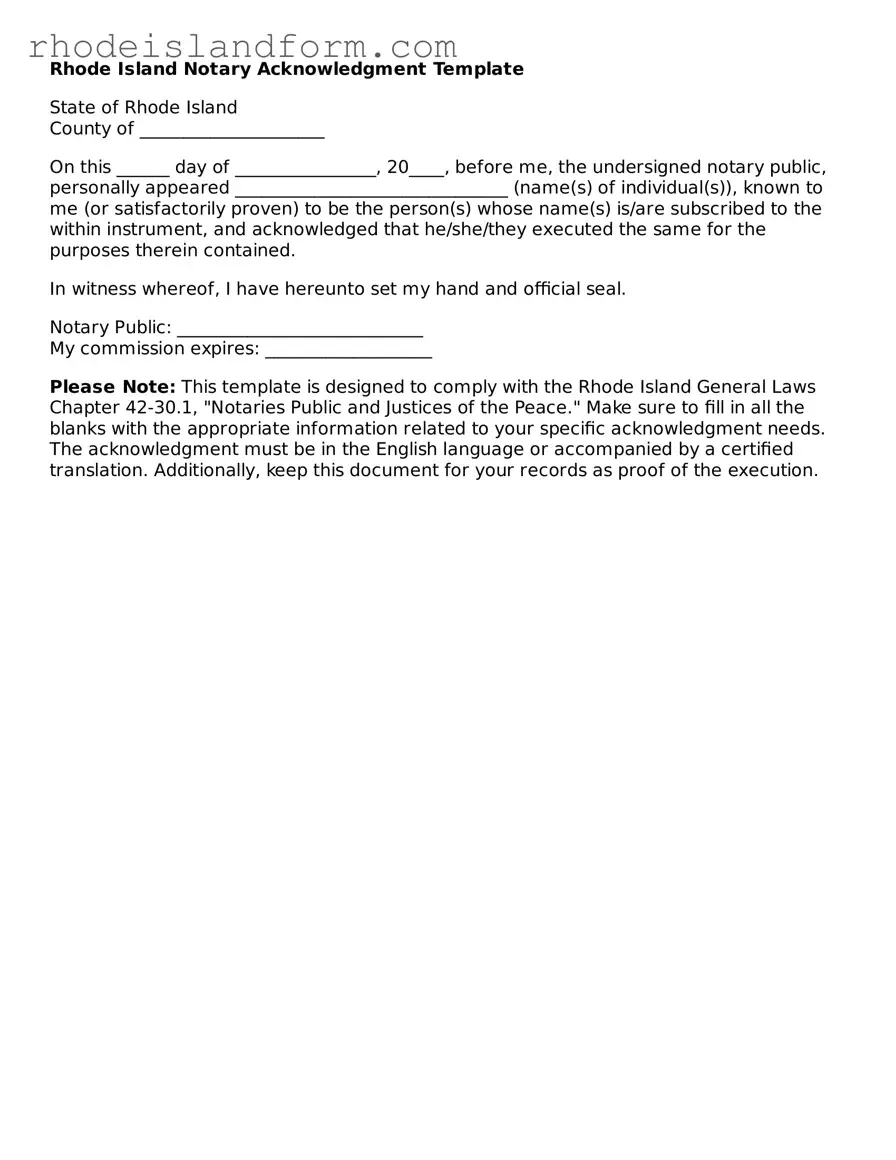Attorney-Approved Notary Acknowledgement Template for Rhode Island
The Rhode Island Notary Acknowledgement form serves as a critical document, formally recognizing the authenticity of signatures on legal documents by having them verified by a notary public. This process ensures that the signing parties have willingly signed the documents under their own free will, bolstering the legal strength of the agreement. For those looking to secure their documents through this verification process, simply click the button below to get started on filling out the form.
Launch Editor Now
